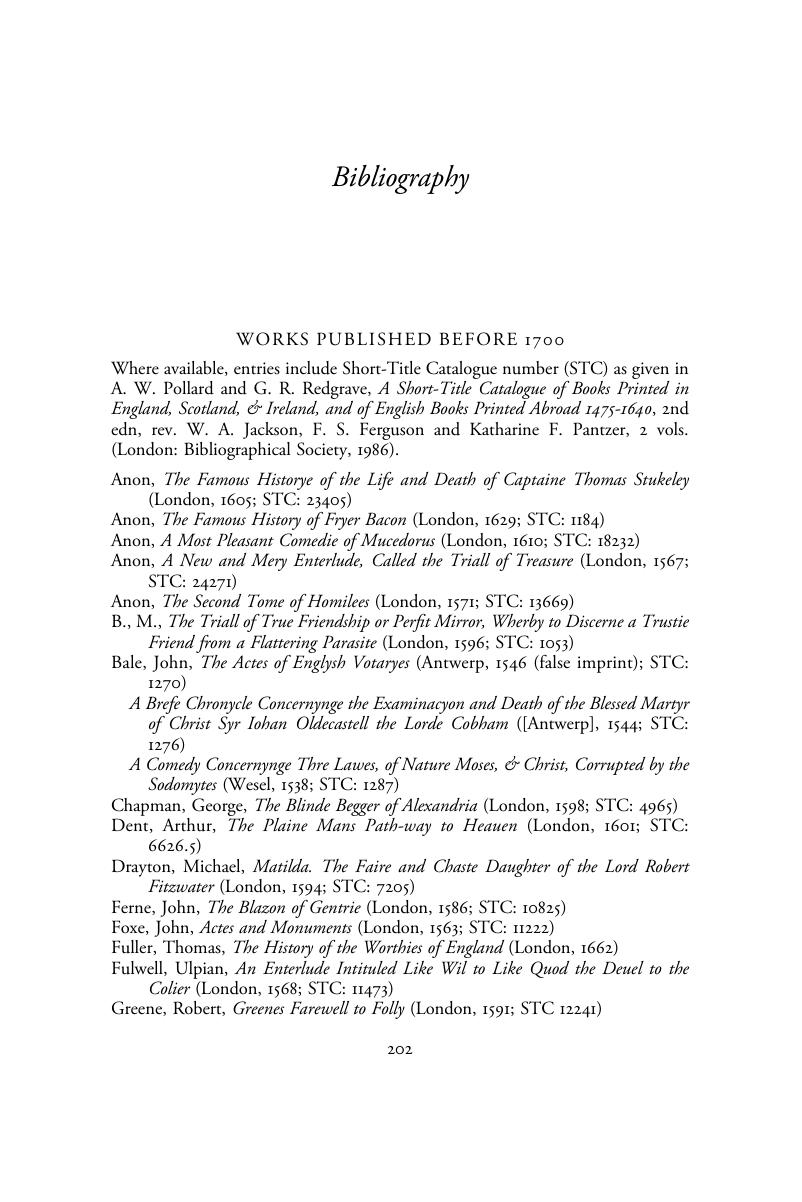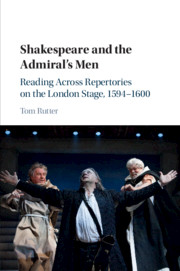Book contents
- Shakespeare and the Admiral’s Men
- Shakespeare and the Admiral’s Men
- Copyright page
- Contents
- Acknowledgements
- Note on Dating
- Introduction
- Chapter 1 ‘How might we make a famous comedie’
- Chapter 2 ‘Hobgoblins abroad’
- Chapter 3 ‘I speak of Africa and golden joys’
- Chapter 4 ‘Sundrie variable and pleasing humors’
- Chapter 5 ‘Nor pure religion by their lips profaned’
- Conclusion
- Bibliography
- Index
- References
Bibliography
Published online by Cambridge University Press: 02 March 2017
- Shakespeare and the Admiral’s Men
- Shakespeare and the Admiral’s Men
- Copyright page
- Contents
- Acknowledgements
- Note on Dating
- Introduction
- Chapter 1 ‘How might we make a famous comedie’
- Chapter 2 ‘Hobgoblins abroad’
- Chapter 3 ‘I speak of Africa and golden joys’
- Chapter 4 ‘Sundrie variable and pleasing humors’
- Chapter 5 ‘Nor pure religion by their lips profaned’
- Conclusion
- Bibliography
- Index
- References
Summary

- Type
- Chapter
- Information
- Shakespeare and the Admiral's MenReading across Repertories on the London Stage, 1594–1600, pp. 202 - 220Publisher: Cambridge University PressPrint publication year: 2017

